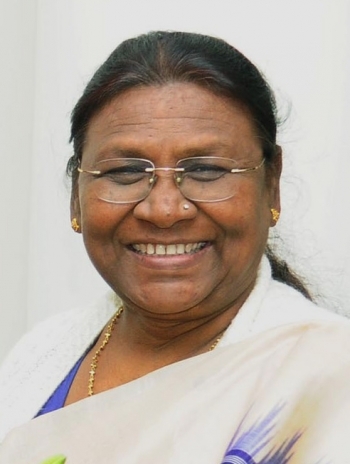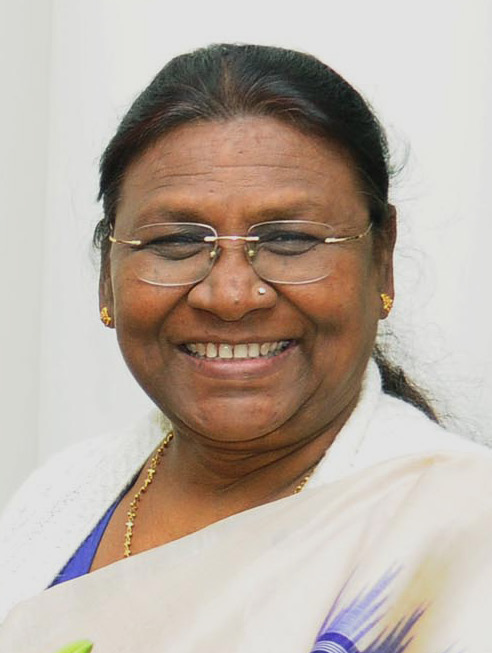
 P. A. Chacko
P. A. Chacko

Draupadi Murmu’s winning the hot seat in the Presidential palace was a foregone conclusion. Given the BJP ‘bulldozer politics’, it was evident to everyone that Yashwant Sinha was going to be a poor runner up.
The Sagh Parivar’s choosing strategically a tribal woman meant many things. That the Parivar was playing the ace card in preparation for 2024 elections. That is to say, to throw the carrot before the already disgruntled Adivasis as if to win their favour. There is more than winning their favour. The Ghar Wapsi game needs to be played more strategically so that the Hindu fold needs to be swelled up for political compulsions. In order to materialize that, Draupadi could be thought of as a willing tool.
Corporate expansion into mineral rich tribal areas is BJP’s constant itch. Given the resistance of some pockets of tribal areas, the ruling party needs to strengthen its brokerage with the Adivasis. And, more legislation is decidedly planned. The government needs a President who will sign on the dotted line.
The ruling party must be wanting to display before the world that we have a woman as a President, a tribal at that. A golden hour for the nation that has erected a ferocious lion in the vicinity of the Presidential Palace!
But, the question is, will Draupadi see through the game? She being a BJP devotee, it is less likely. That is where the nation has to pay the price for making the Presidential election a political gamble rather than making it a process for electing a consensus and non-controversial candidate. The President, as head of a secular, democratic nation, should be a non-political person. But, in a quirky world of politics, principle and practice may not often match.
Now, coming to the 15th President elect, the Honorable Draupadi Murmu, one needs to congratulate her for winning the election. She is the head of the largest democracy in the world. In a nation moulded in a patriarchal warp, a woman at the top as the Executive can be displayed as a feather in the cap for political reasons. The tribal world may be happy for the reason that, for the first time in the history of the nation, a tribal woman representative has been given such an honour. But, it appears, that the Adivasi community is also anxious as to what to expect from their tribal member or what is in store in coming days and months.
Draupadi Murmu needs to face squarely a number of questions at this juncture. Given that her gene is Adivasi gene, not Aryan gene, will she not stand up before the Ghar Wapsi crusaders to assert her community’s identity? In the Sangh Parivar’s thrust for the Hinduisation of the Adivasis, will she have the courage like Ramni Durgavati, the Gonds queen from 1550 to 1564, who was an icon in warfare by defending her kingdom against the Mughal army? Or like Rani Gaidiliu of the Nagas who led a movement against the colonial rulers exclaiming; “We are free people – the white man should not rule over us.”? Or like Karnataka’s Queen of Kittur, Kittur Chellamma, who defied the British ‘Rule of Lapse’ and led a movement. The ‘Rule of Lapse’ meant that when the ruler of an independent State died childless, the right of ruling the State would revert to the British Sovereign. Kittur Chellamma put her foot down before the cruel British rule. Chellamma, Gaidiliu and Ramni were indigenous women of merit and substance.
Today, in the bulldozer politics of the ruling party and its liberalization and privatization policies, the tribal land is a hot potato. Tribal areas hold over 40% of India’s minerals. Hence, the business hawks are there. The corporate-loving party will indeed connive with the business hawks to grab and dispose of tribal land and even think of bringing in new legislation to remove land tenancy laws and hurdles. What will Draupadi do? Will Mam keep mum? Will Mam sign on the dotted line? Will she want to see her community disintegrate as displaced people, migrant workers and homeless vagrants?
Madam Draupadi Murmu, apart from being a tribal, is also the representative of all the citizens and communities of this nation. With her intellectual maturity she must know that this ancient land, with its noble tradition and diversity, does not belong to one particular community, caste or class. With its communities, religions and classes, India is a colourful spectrum that should not be marred by skewed nationalism or religious fundamentalism. That is where she is called upon to swear by the Constitution and guarantee publicly that she would honour and uphold the Constitution, its values and principles: “I do solemnly affirm (or swear) that I will faithfully execute the office of the President of the Republic of India, and will to the best of my ability preserve, protect and defend the Constitution and the law and that I will devote myself to the service and well-being of the people of India.”
Hence, man or woman, the President is the guardian of the Constitution and is at the service of the people of India without bias or favour. A weak-kneed President can be a casualty for the nation. The 15th President should be aware that the nation is passing through hard times, economically and politically. This nation cannot be sacrificed on the altar of religious fundamentalism or arrogant majoritarianism. Nor should it be dragged down to economic disaster or political depravity as our neighboring nation Sr. Lanka witnessed.
We expect the President to be a person with backbone who will not play partisan politics nor become a puppet of the ruling dispensation. In the process of safeguarding the Constitution and laws, he or she should have the virtue of eternal vigilance so that the predator like politicians will not hijack the nation into their private fiefdom.
We wish Honorable President, Draupadi Murmu, a smooth travel and a happy relationship with all the citizens of the land.